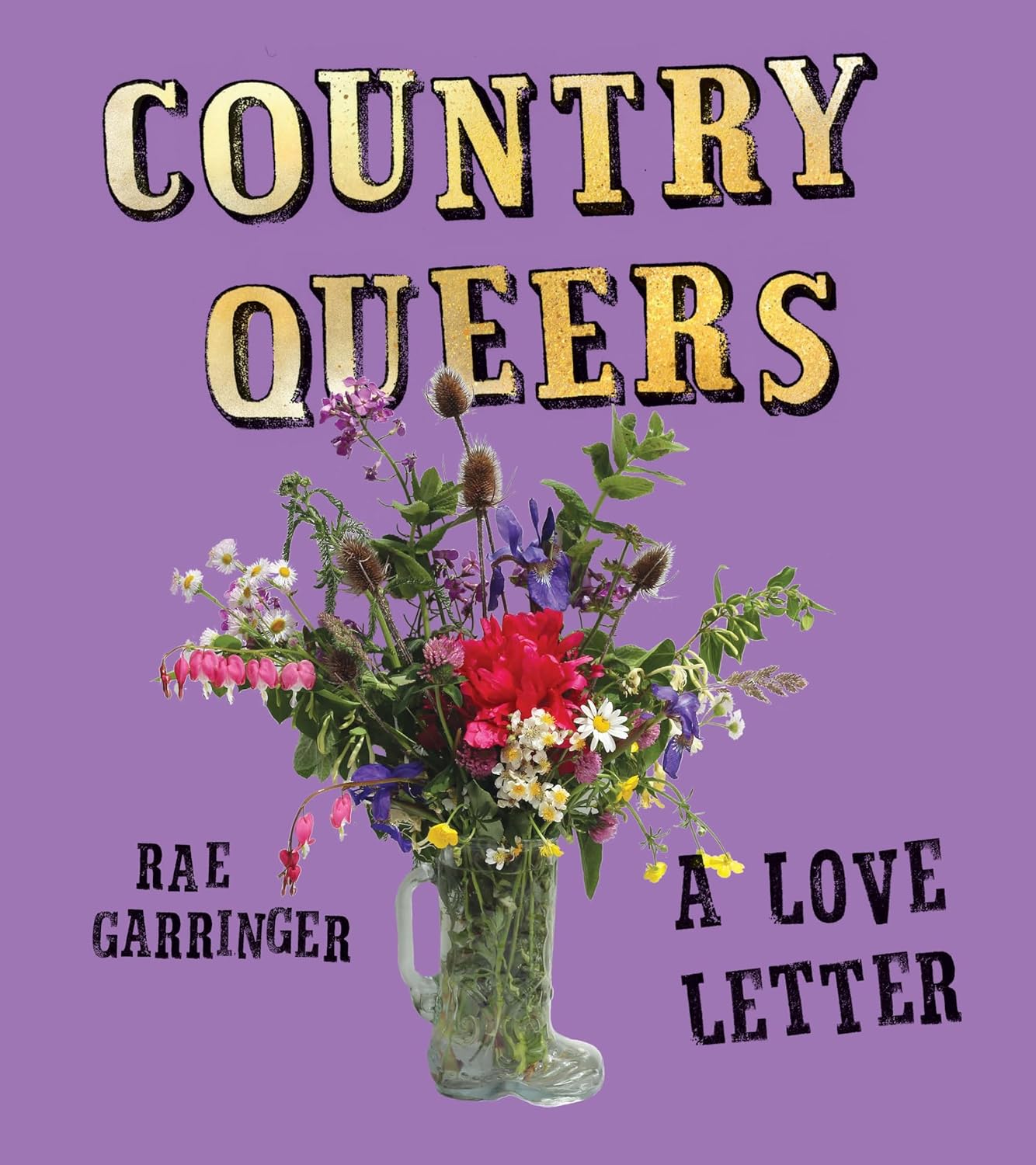Review of Country Queers: A Love Letter by Rae Garringer

Country Queers: A Love Letter
Rae Garringer
Haymarket Books, 2024, 208 pages
$24.95
Reviewed by Allison Quinlan
Country Queers: A Love Letter is, simply put, a celebration of queer stories. Opening the book and seeing so many familiar interviews from Country Queers oral history project brings back vivid memories of the first time I heard these stories—a feeling I suspect many who followed this project will likely share. The work is stunning visually, with each page showcasing beautiful artwork and photography, but the real heart of the work is the platforming of queer stories. Garringer’s work tenderly immortalizes queer rural lives.
This work commits to a holistic view of queer country life, gracefully balancing stories of joy, community, and love with harsher realities of oppression, isolation, and loss. Garringer reflects on how much queer rural narratives center on suffering, but they beautifully emphasize how queerness is also full of life and celebration and persistence. This duality is interspersed well, and you get a full picture of what it can mean to be a country queer.
“In the beginning of this project, my questions skewed heavily toward asking what issues and challenges rural queer people faced, but many narrators, including Sandra [an interviewee], taught me that those weren’t necessarily the right questions to ask and that our struggles aren’t the only interesting or important things to talk about” (54).
Garringer weaves their journey as an interviewer within the histories and perspectives on queer life in rural or country settings and explores intersecting identities excellently. You feel connected to interviewees on the pages through Garrigner’s commentary alongside transcripts, and these connections only grow as you dive deeper into the book. The structure follows the project’s journey from the start (2013) to the pandemic years (2020 to 2023). Even the process of finding interviews was fun to read about; so many stemmed from connection through queer grapevines. Many queer folks may recognize this phenomenon as a tried-and-true method of connecting. The book does well in recognizing and celebrating diversity in rural queer communities. Themes of life, community, land, and home fill the pages. Accompanying each narrative is an inclusion of Indigenous land acknowledgements.
Country Queers touches on several connected topics—activism, disability, climate change, family, loss, and love. Some of the more moving sections explored the loss the AIDS epidemic brought. Throughout are recollections of how queer community was its own source of strength when facing unimaginable loss or harm. Garringer writes, “rural people often depend on each other to survive, taking care of each other” (95). Threads of survival and joy run through the book, but it doesn’t avoid challenging topics. Further, they write about how rural queers’ stories need to be shared, given that so many elders and histories can be inaccessible or hidden.
“Ninety-plus interviews in, and I can count on one hand how many were elders. . . we have been robbed of access to our rural queer elders through decades of outmigration, through the AIDS epidemic, and through the long country queer survival strategy of silence and secrecy” (49).
This treasure trove of stories connecting us to locations, histories, and communities reveals realities many may be unfamiliar with. It often seems that many view rural spaces as inhospitable for queerness, but this book reminds us otherwise. It’s a love letter, like the title says, not only to the individuals whose stories fill the pages but to rural queer folks everywhere. The book is more than transcriptions of stories—it’s a connective celebration visibilizing queerness.
Whether or not you followed the Country Queers project for ages or you’re just now learning about it, it’s a must-read for anyone interested in queer history and rural life. There are events in 2024 and 2025 across the United States with the author, and you can check them out here if you’d like to learn more. The project is so beautiful in multiple ways. I hope you love this book as much as I do.
Allison Quinlan (they/she) is a queer American from the rural south living in Scotland with their partner. They volunteer as a copyeditor for Sinister Wisdom and manage a non-profit in the UK that supports survivors of abuse.
"Empowerment comes from ideas."
― Charlene Carruthers
"Your silence will not protect you."
— Tourmaline
"Gender is the poetry each of us makes out of the language we are taught."
— Leila Raven


